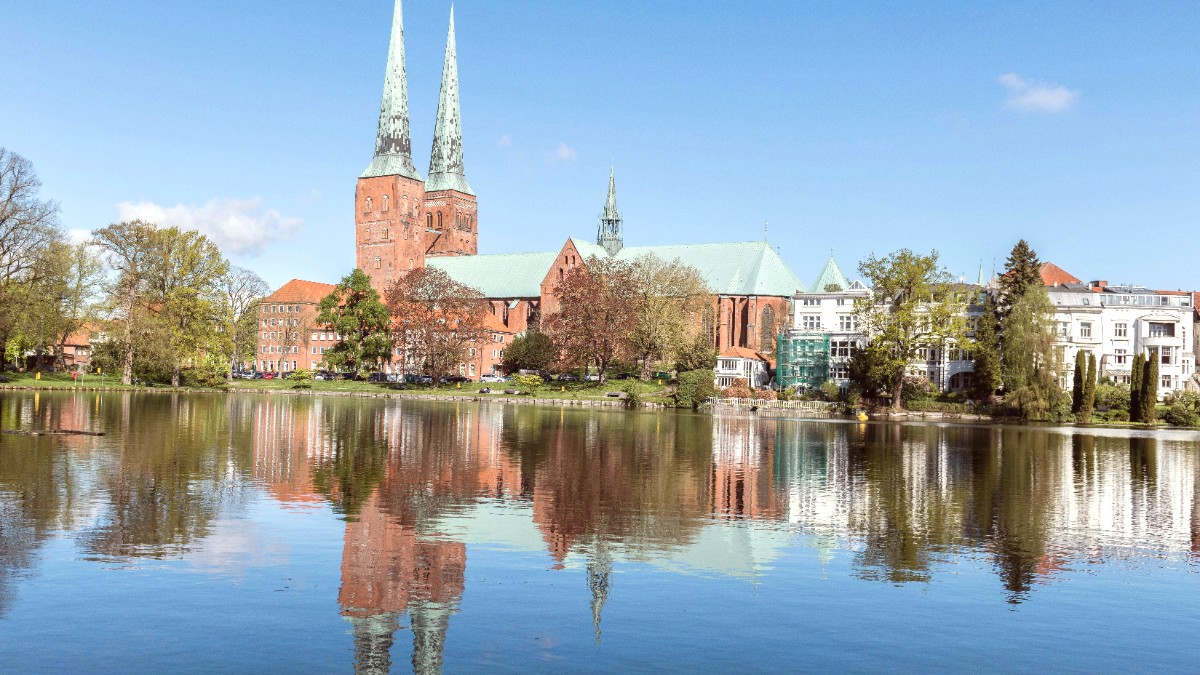
Schleswig Holstein, Germany
Lübeck experiences varied weather throughout the year. Spring and autumn are mild, with comfortable temperatures and changing foliage. Summers are the warmest, with long daylight hours for sightseeing. Winters are cold, with possibilities of snow and ice, offering an unique charm.
Rain is possible year-round, so a compact umbrella or a waterproof jacket proves useful for any season.
High Season (June-August, December for Christmas markets): Warmest weather, longest daylight. Higher prices for accommodation and flights. More crowds at popular sites. Advance bookings are often required for hotels and some restaurants.
Shoulder Season (April-May, September-October): Pleasant temperatures, fewer crowds compared to high season. Prices for flights and accommodation are generally lower. Beautiful natural scenery, with spring blooms or autumn foliage. Suitable for outdoor activities.
Fewest crowds, lowest prices
Lowest prices for flights and accommodation. City offers an unique winter charm if snow falls. Good for indoor cultural experiences.
Cold weather, shorter daylight hours. Some attractions may be closed or have limited hours. Fewer outdoor activity options.
For various activities
May to September for comfortable temperatures and long daylight. Boat trips operate May to October.
June through August for Travemünde beaches. Late November to late December for Christmas markets.
Be Prepared
Winters can be cold with potential for ice and snow. Warm clothing and appropriate footwear are needed.
Rain is possible year-round. Summers can experience heatwaves, though less common than in southern Germany.
Expect more visitors at popular sites during peak summer months and the Christmas market season. Booking accommodation and some restaurants in advance is recommended.
For a balance of pleasant weather and fewer crowds, consider a trip during spring or autumn. You often find better prices for flights and lodging during these periods.
Best between May and September for comfortable temperatures.
Available from May to October for scenic Old Town views.
June through August offer prime conditions for sunbathing and swimming.
Late November to late December transforms the city into a festive wonderland.
Suitable all year, especially during colder months from November to March.
Germany is a member of the Schengen Area, which generally means simplified entry for many nationalities.
Germany is part of the Schengen Area, impacting visa needs. Citizens of many countries, including the United States, Canada, Australia, New Zealand, and the United Kingdom, can enter Germany visa-free for tourism or business for up to 90 days within any 180-day period. This permits freedom of movement across 27 Schengen countries.
Proper documentation is essential for entry into Germany and the Schengen Area. Prepare your passport, proofs of travel and accommodation, and evidence of financial stability. Travel insurance is mandatory for Schengen visa applicants.
Costs vary significantly based on your travel style, but smart planning allows for an enjoyable trip within your means. The Euro (€) is Germany's currency. ATMs are widely available and offer good exchange rates.
Lübeck is a safe and clean city. Germany maintains a high standard of medical care.
No specific requirements for entry. Ensure routine vaccinations (MMR, DTP, Polio) are current. Hepatitis A and B are generally recommended. Consult your doctor.
Practice good hand hygiene, use Hand sanitizer, and avoid touching your face, especially in winter.
If hiking, use Insect repellent and check for ticks. A vaccination for FSME (Tick-borne Encephalitis) exists.
European Emergency Number: 112
Germany maintains a high standard of medical care. Doctors ("Arzt") and pharmacies ("Apotheke") are readily available. Pharmacies display a red "A" sign and offer basic health advice.
For non-emergencies, contact the police at 110. Major hospitals in Lübeck include Universitätsklinikum Schleswig-Holstein (UKSH), Campus Lübeck, and Sana Kliniken Lübeck.
Tap water is safe to drink. Food hygiene standards are high.
Lübeck is a very safe city with low crime rates. The Old Town remains very safe, bustling day and evening.
Be aware of your surroundings in crowded areas like train stations or major tourist spots, where pickpocketing can occur. Secure your valuables. Consider Pacsafe for anti-theft gear.
Lübeck has a low risk of significant natural disasters. Seasonal hazards include icy sidewalks in winter and occasional heavy thunderstorms in summer.
Keep these emergency contacts readily available:
For minor ailments, pharmacies are often the first stop. For more serious concerns, Lübeck has modern hospitals.
Campus Lübeck. A major medical facility providing comprehensive care.
Another modern hospital option in the city for various medical needs.
Recognized by a red "A" sign. Offer over-the-counter medications and basic health advice.